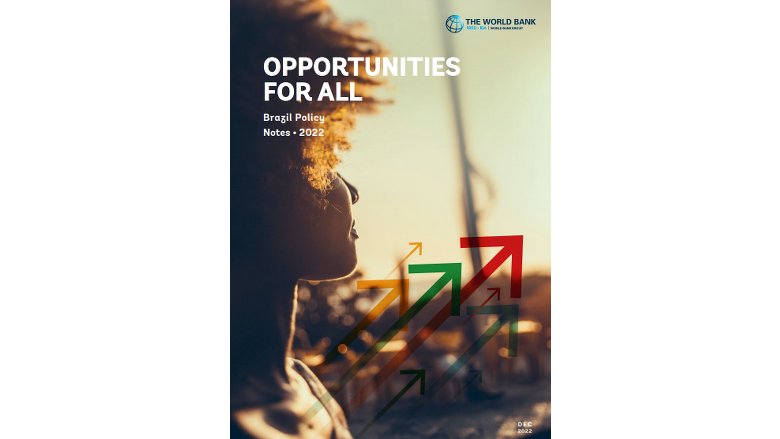On this page, you will find Policy Notes based on seven recent reports from this institution, addressed to policy makers and Brazilian society. This document provides the World Bank Group’s diagnosis of Brazil’s main economic and social development challenges and charts a possible course to address them.
Under a new government, Brazil faces the task of ensuring recovery from past shocks and building a future with opportunities for the entire population. In this sense, the report presents a priority agenda around issues of fundamental relevance for Brazil's recovery and future resilience.
View the full report: Opportunities for All - Brazil Policy Notes
Check out the topics addressed in the Policy Notes:
Meeting Brazil’s Potential as a Green Economy
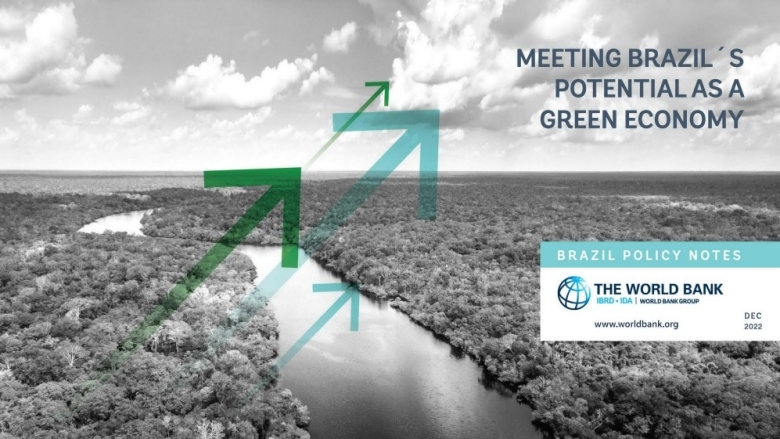
Brazil is highly exposed to climate risk and need to take action to avoid irreversible damage to its economy. Brazil is in an exceptional position to achieve emissions reduction at low costs and to benefit from climate action. Leveraging its advantages in green energy and shifting from an economic model based on resource exploitation to one based on productivity growth can achieve tow objectives: enable Brazil to grow its economy and lead to a greener, richer, more sustainable, and inclusive future.
Developing a Resilient, Sustainable, and Inclusive Response to Brazil’s Recovery Process
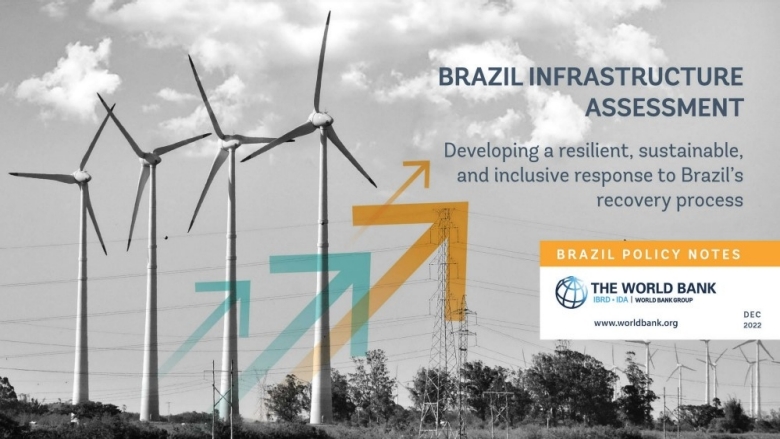
Brazil’s path to economic recovery will be challenging given the country’s legacy of structural and fiscal vulnerabilities. Infrastructure development will be key to the country’s recovery efforts and ensuring long-term, sustainable growth. Policy reforms in the infrastructure sector have resulted in diminished investments. Persistently low levels of investment have depleted Brazil’s infrastructure. Public investments must be designed to maximize net benefits.
Sustainably Financing Development
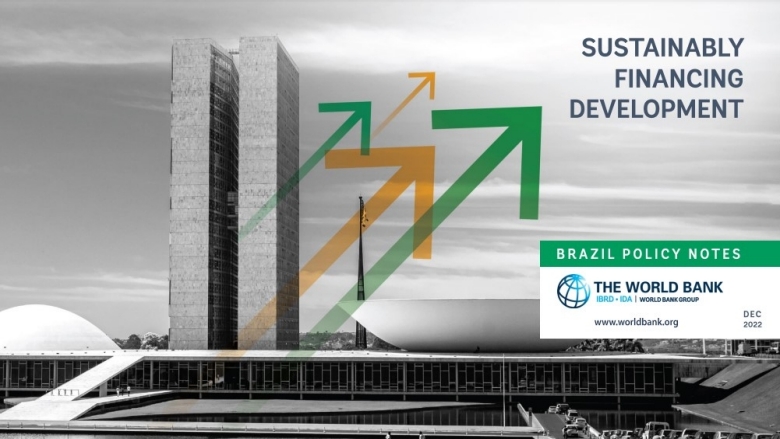
As the incoming authorities seek to fulfil commitments and securing the recovery, it will be essential to situate these efforts within a sound medium-term fiscal plan that carves out space for priority development needs while shoring up the credibility of the fiscal framework. The main challenge facing Brazilian fiscal policy is navigating the delicate balance between promoting growth, inclusion and climate resilience through the budge and maintaining fiscal discipline. Key elements of such a plan include: (i) maintaining a credible fiscal anchor; (ii) making social transfers and taxation more efficient and progressive; and (iii) containing public sector remuneration.
Creating Opportunities through Productivity-Led Growth
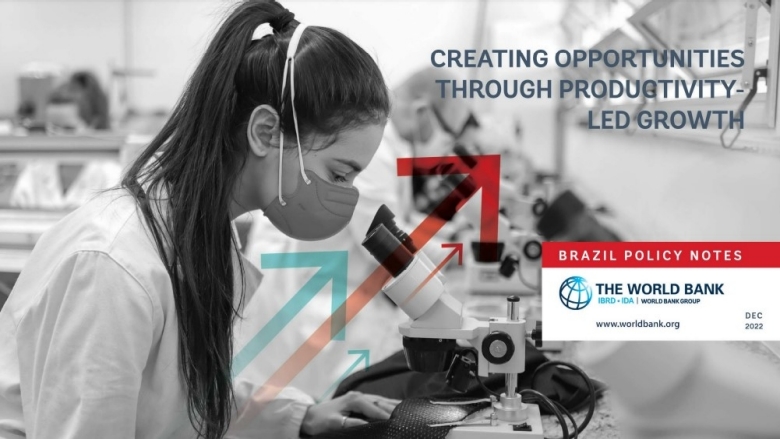
The most important obstacle to increasing the incomes of Brazilians is the economy’s low-productivity model, which has underpinned Brazil’s lackluster economic performance over the past two decades. A renewed focus on economic growth is essential if the next administration is to succeed in creating opportunities for Brazilians, especially the underprivileged among them, and, reducing their reliance on cash transfers. Decisive reforms will be critical. The report presents policy options for accelerating productivity-led growth by: (i) deepening integration and competition through trade; (ii) increasing innovation and technological uptake; (iii) improving the investment climate; and (iv) modernizing infrastructure and its management.
Mitigating Poverty, Improving Resilience, Restoring Opportunity
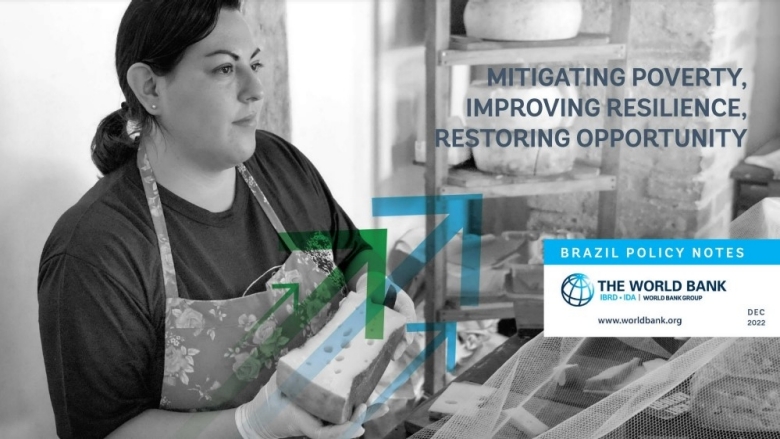
Recent trends threaten to reverse years of poverty reduction. Social protection and labor policies were central to Brazil’s social progress, but their sustainability and impact are at risk. Policy reforms can enhance inclusion and resilience of poor and vulnerable Brazilians, without increasing fiscal costs. The World Bank can continue to support this agenda in Brazil through analytics, operations, and global knowledge.
Placing Learning and Skills Back on the Right Track
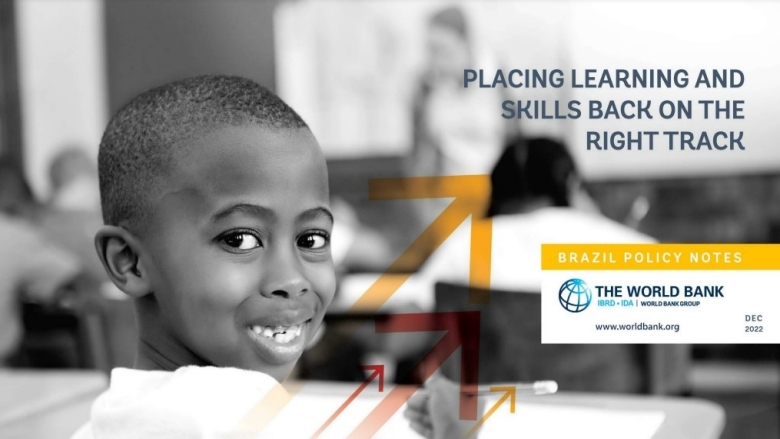
The report presents four facts of why talent matter: Brazil loses enormous talent due to unideal education and health conditions; talent is regionally concentrated within Brazil; talent is also unequally developed between race and gender gaps; and talent is mainly associated with education.
